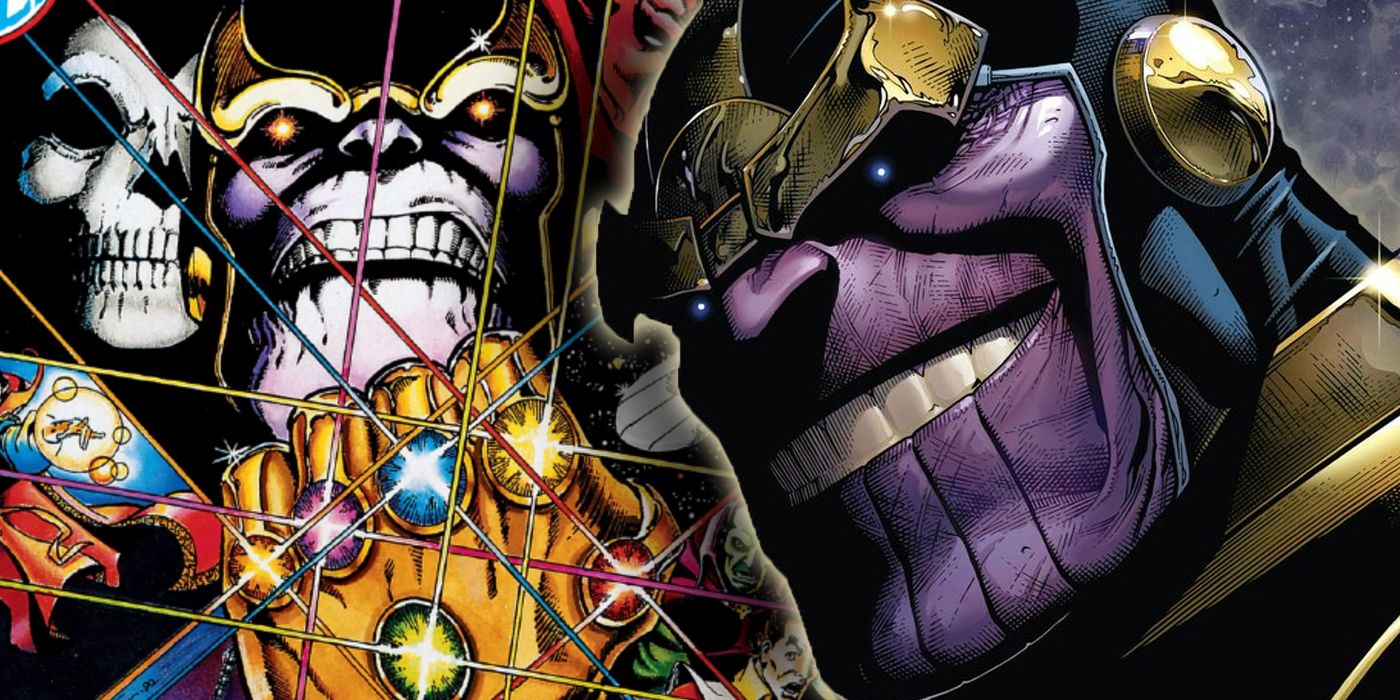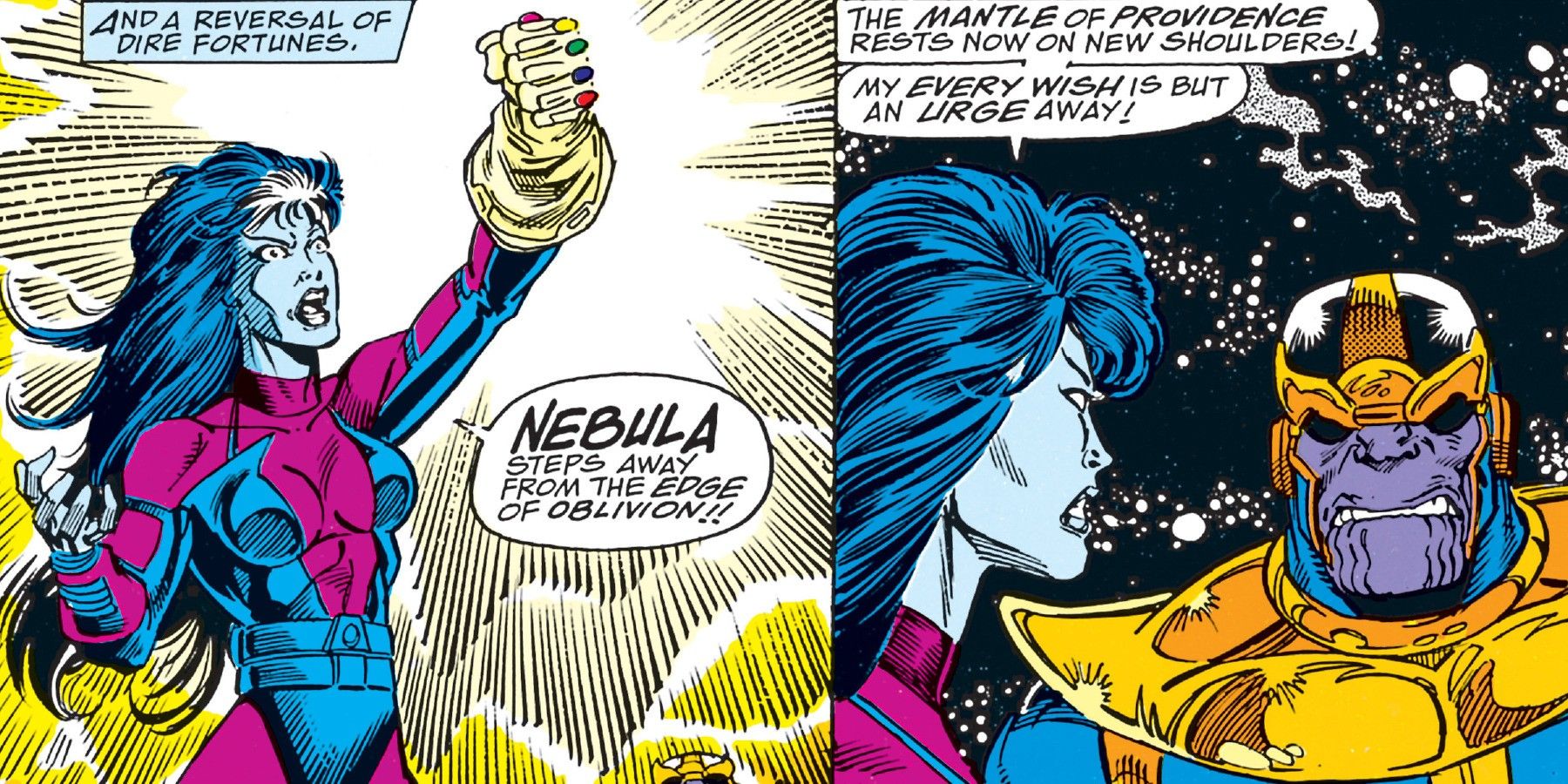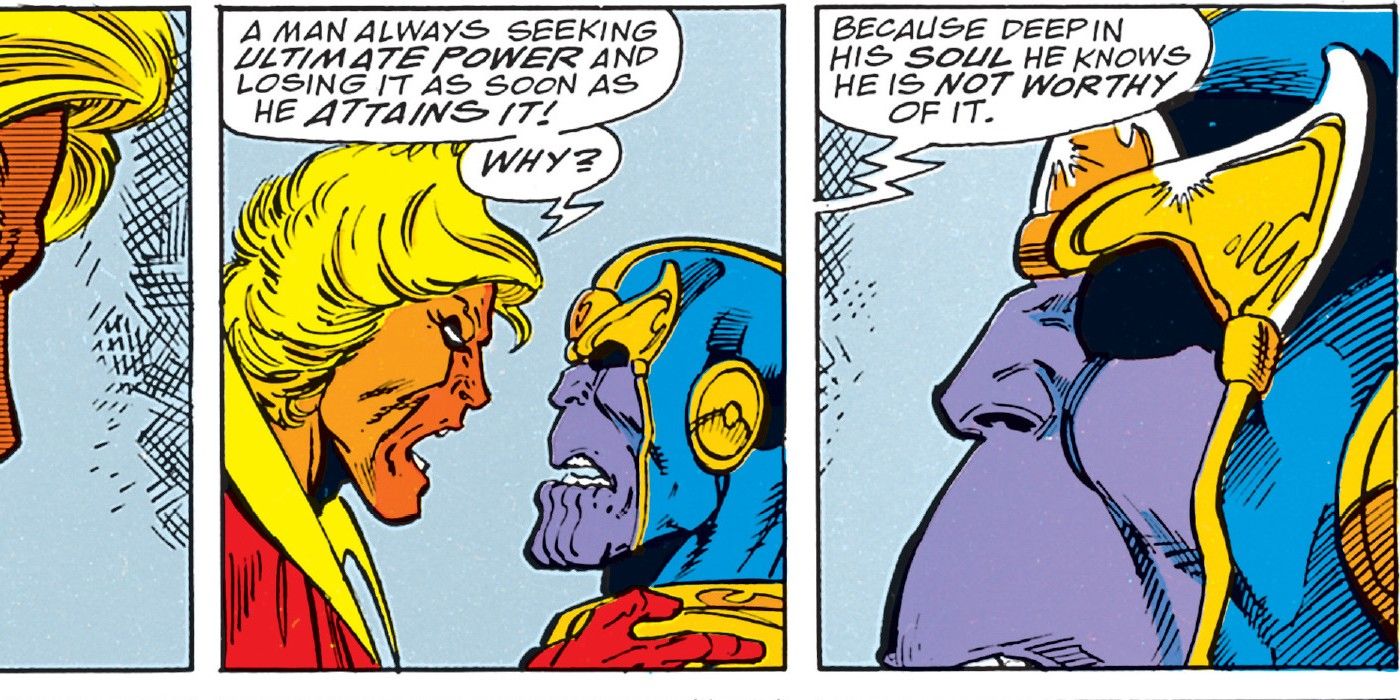Thanos is most well-known for his quest to assemble the Infinity Gauntlet. In the MCU, it took a great deal of effort to defeat the Mad Titan and separate him from the Infinity Stones. In the original comic book story that inspired his cinematic quest, however, Thanos lost the Infinity Gems in a defeat that was fairly different from his MCU counterpart.
Thanos's downfall began during 1991's Infinity Gauntlet #5 by Jim Starlin and Ron Lim. By this point in the story, Thanos had become an omnipotent being, thanks to the Infinity Gauntlet's power. The Mad Titan eliminated half of all life in the universe and killed almost all of Earth's heroes, later setting his sights on Marvel's cosmic pantheon. Cosmic giants like Galactus and the Stranger gave Thanos quite the challenge before he ultimately bested these powerful entities.
Ultimately, Thanos reached his peak when he transformed himself into Eternity, the embodiment of all there is. Of course, in doing so, Thanos left his own body. In a vulnerable state, Thanos couldn't help but watch as his granddaughter, Nebula, stole the Infinity Gauntlet from his hand. Wielding the power of the Infinity Stones, Nebula banished Thanos into space. Fortunately, Thanos was saved by Adam Warlock.
Uniting over a common enemy, Thanos worked with Warlock and heroes such as Doctor Strange and the Silver Surfer. Before confronting Nebula, Warlock privately revealed to Thanos exactly why he lost the gauntlet. According to Warlock, Thanos subconsciously allowed his own defeat.
Each time Thanos has sought ultimate power, Warlock reasoned, Thanos failed because he realized that he's not worthy of this power. Reluctantly accepting this truth, Thanos helped Warlock and the heroes defeat Nebula. Afterward, Thanos faked his own death and Warlock took the Infinity Gauntlet. Locating Thanos, Warlock found that the Mad Titan had given up his quest for power. Instead, Thanos chose to live a quiet, isolated life on a farm.
The main similarity between comic book Thanos losing the Infinity Gauntlet and MCU Thanos losing the gauntlet is in their respective endings. At the end of Avengers: Infinity War, Thanos chose to give up his life of violence and live on a farm. Both versions of the Mad Titan were done seeking power. This, however, is where the similarities generally end. MCU Thanos gave up his power because he'd won. Thanos wiped out half of all life with the Infinity Gauntlet, seeking no further ends to his quest.
Comic book Thanos, however, couldn't stop, seeking more and more power to impress Mistress Death. For this reason, MCU Thanos essentially quit while he was ahead, destroying the Infinity Stones once he'd achieved his goal. This version of Thanos also had stronger convictions than his comic book counterpart. MCU Thanos didn't lose the gauntlet because he believed he was unworthy, he was simply finished using the stones.
In Avengers: Endgame, after Thanos died, an earlier version of the Mad Titan entered the picture. This Thanos wanted to double down on his older self's plan, wiping out all life and starting anew. Here, Thanos is closer to his comic book counterpart's goal of conquest and power. Even so, he was still stronger in his convictions than comic book Thanos. It wasn't until Iron Man used the Infinity Gauntlet to kill this younger Thanos that he truly lost.
Both versions of Thanos in the MCU believed themselves worthy of the gauntlet, but comic book Thanos lost it due to fear and anxiety. Overall, it's the different motivations between MCU Thanos and comic book Thanos which led to their distinct downfalls.
Comic book Thanos wanted ultimate power, but he knew deep down that he wasn't worthy of this power. MCU Thanos, on the other hand, wanted to bring order to the universe, and he firmly believed he was the one to provide this order. It's these contrasting motivations and convictions that distinguish both versions of Thanos, ultimately leading to radically different downfalls.



